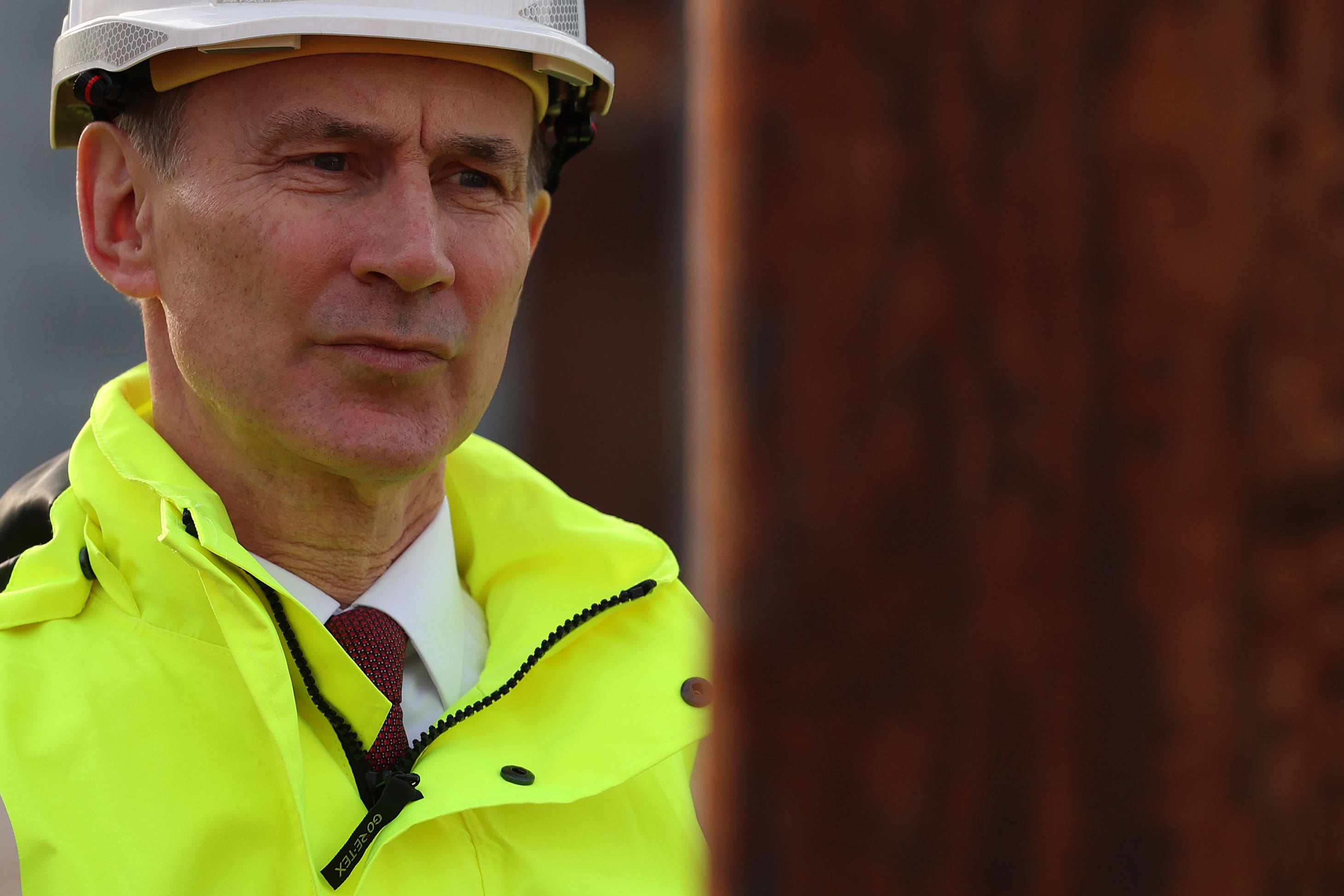Slower increase in debt creates room for tax cuts, economists say
Borrowing was much lower last month than the Office for Budget Responsibility’s last forecast.

The Chancellor will be given breathing room to cut taxes or boost spending, economists have said, as the Government borrowed less money than expected last month.
The Office for National Statistics said that public sector bodies borrowed £7.8 billion in December, more than £6 billion less than economists had expected.
It was also £8.4 billion less than a year earlier and the lowest December borrowing figure since 2019.
“This was mainly due to a large drop in debt interest payments which reflected a fall in monthly RPI (retail price index) inflation in October, while the energy price schemes, which contributed to spending last winter, are no longer in place,” said Michal Stelmach, senior economist at KPMG UK.
Economists said that this could give the Chancellor the space he needs to announce tax cuts in March. This is because the Office for Budget Responsibility’s last forecast expected borrowing to be higher.
Forecasting that RPI inflation would be 7.0% in October, the OBR assumed that borrowing would be £14.0 billion in December.
But because RPI was much lower, at 6.1%, the interest that the Government paid on its loans dropped from £18.1 billion in December 2022 to £4.0 billion.
The fact that borrowing is billions of pounds lower in theory allows the Government to spend more money, or raise less money through taxes.
The Chancellor has signalled that if given the choice he would use extra headroom to cut taxes rather than spend more.
But economists warned that these figures do not show that the Government’s wallet is bulging with cash.
Total net debt was £2.69 trillion at the end of the year, which is around 97.7% of the size of the economy, or gross domestic product (GDP).
It means that the debt to GDP ratio is 1.9 percentage points above last December and still at levels not seen since the early 1960s.
“To be clear, implicit even in today’s numbers is that the UK’s public finances do remain under significant strain,” said Sandra Horsfield, an economist at Investec.
She pointed out that while interest payments fell £14.1 billion, borrowing only fell by £8.4 billion. And that was not taking into account that the Government’s coffers also benefited from the de facto end of support on energy bills, which was costing it billions last winter.
Samuel Tombs, chief UK economist at Pantheon Macroeconomics, said that falls in gilt yields, that is the interest the Government pays on some of its loans, and the expectation that interest rates will fall opens up more room for the Treasury.
“In the budget on March 6, (Chancellor Jeremy) Hunt almost certainly will cut personal taxes in a bid to improve his party’s chances in the general election,” he said.
Chief Secretary to the Treasury Laura Trott said: “Protecting millions of lives and livelihoods during Putin’s energy shock and a once-in-a-century pandemic has created economic challenges.
“However, it is right that we pay back these debts so future generations are not left to pick up the tab.
“Because of this Government’s decisive action, the economy is now beginning to turn a corner.
“Inflation has more than halved. Debt is on track to fall as a share of the economy. And we have been able to afford tax cuts for 27 million working people, and an £11 billion tax cut to drive business investment.”
Bookmark popover
Removed from bookmarks